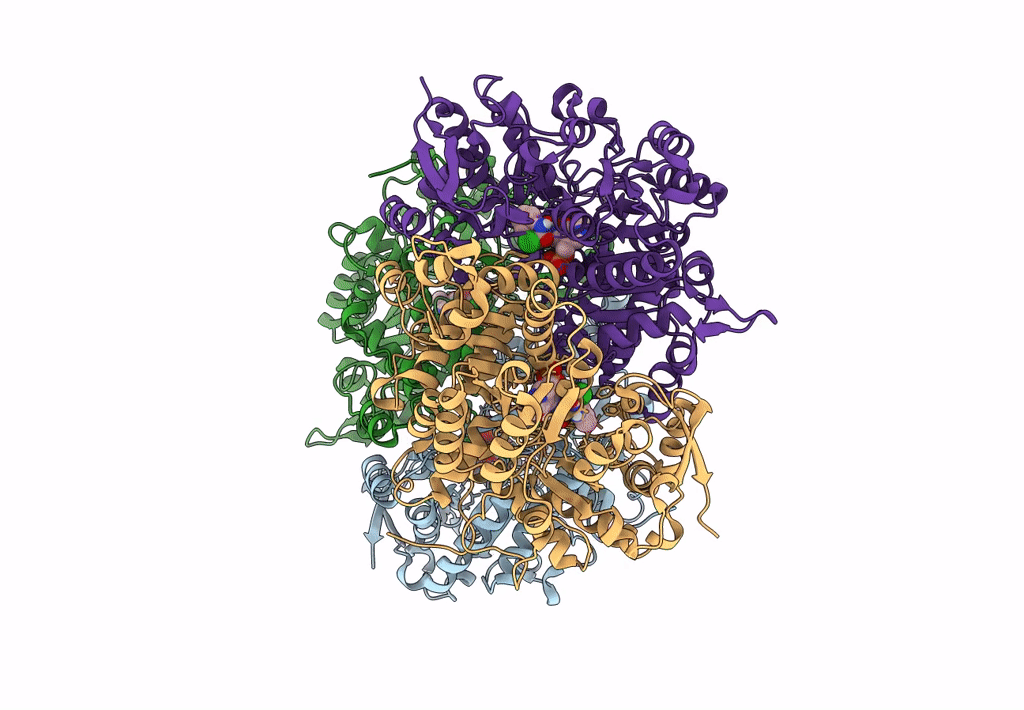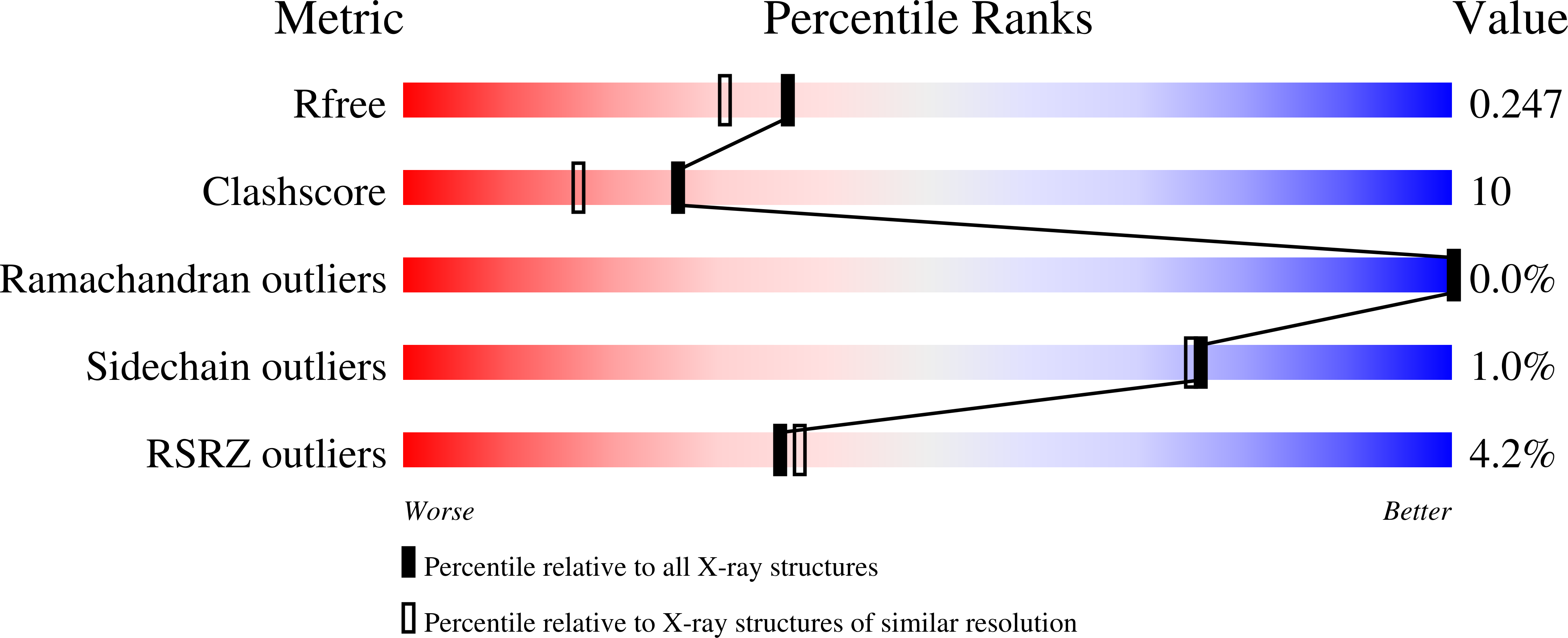
Deposition Date
2023-04-21
Release Date
2023-08-23
Last Version Date
2023-11-29
Entry Detail
PDB ID:
8SL7
Keywords:
Title:
Butyricicoccus sp. BIOML-A1 tryptophanase complex with (3S) ALG-05
Biological Source:
Source Organism(s):
Butyricicoccus sp. BIOML-A1 (Taxon ID: 2584625)
Expression System(s):
Method Details:
Experimental Method:
Resolution:
2.07 Å
R-Value Free:
0.24
R-Value Work:
0.20
R-Value Observed:
0.20
Space Group:
P 1


